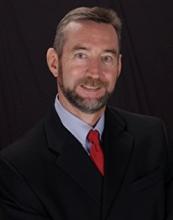
Member Prices
Non-Member Prices
Although conducting therapy over video has great similarity to providing office-based services, the new medium does present some special challenges and considerations.There is no doubt that the full range of senses and observation is reduced in the video-conference environment. While the empirical literature strongly suggests that outcomes are as good in the tele-behavioral health as in ‘face-to-face’ environments, the practitioner may nonetheless need to make some adjustments in understanding regulatory requirements and conducting therapy to optimize care. The presentation will review essentials of licensure, record-keeping, and privacy practices for clinicians new to offering tele-therapy.
Equipping the clinical practice for tele-therapy entails much more than securing a video-conference technology. This presentation will focus on fine-tuning the video-conference technology used in tele-therapy, modifying the office environment to optimize the client and practitioner experience, and adapting therapeutic interventions to the new environment. Variables such as office lighting, camera angle, background, and management of distractions are critical factors for practitioners adopting tele-therapy as a tool for expanding access to care.
In addition, the practitioner new to tele-therapy should consider implementing the new modality as analogous to staging a one-actor play. No performance goes live (or should!) without planning for set (office environment), script (client introduction and education about care via tele-therapy), and dress rehearsal (testing the office environment before the first client contact). The presentation will offer guidance on tech support, testing and feedback prior to first use, as well as recommended approaches to orienting clients to tele-therapy.
Finally, the presentation will address issues and nuances from the author’s clinical experience in anticipating and managing therapeutic issues in the tele-therapy environment. While the equivalence of tele-therapy to ‘face-to-face’ is well established, the presenter will address some aspects to tele-therapy that may provide an improvement to office-based care, particularly to the additional value of home-based care. The value of initial and periodic self-report clinical inventories will be discussed as a means of monitoring progress and safety in the care of distant clients.
At the end of this session, participants will be able to…
Make adjustments to the office environment to improve the clinical quality of tele-therapy.
Summarize key regulatory requirements that apply to providing mental health services via tele-health.
Evaluate available video-conference systems to optimize session quality, availability of technical support, and adherence to regulatory requirements.
Presentation Level: Introductory
This webinar is eligible for 1 CE / CE Hour by APA, NBCC, the New York State Education Department's State Board for Social Work, and the California Association of Marriage and Family Therapists. This webinar meets the qualifications for 1 hour of continuing education credit for LMTs, LCSWs, LPCCs, and /or LEPs as required by the California Board of Behavioral Sciences.












